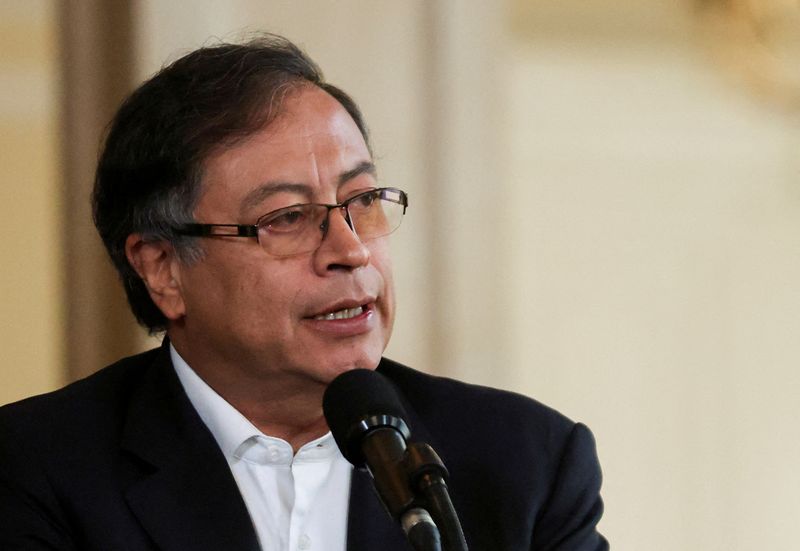By Luis Jaime Acosta
BOGOTA (Reuters) - Colombia's Congress on Wednesday approved a law to allow President Gustavo Petro to seek peace deals with leftist rebels and criminal groups tied to drug trafficking via negotiations and processes of surrender.
Petro, the country's first leftist president, has proposed a process of "total peace" to bring Colombia's internal armed conflict of almost six decades to an end.
Fighting in the Andean country has left at least 450,000 dead and millions displaced.
The new law will enable Petro to begin peace talks with guerrilla organization the National Liberation Army (ELN) and dissident groups from the now-demobilized Revolutionary Armed Forces of Colombia (FARC), who reject a 2016 peace deal.
Petro also has the green light to begin talks with criminal groups accused of drug trafficking such as the Clan del Golfo.
"This is the first step towards the deepening of democracy, solidarity, inclusion, but above all the start of definitively turning the page on the bloodbath in which we are still immersed, of the delay to which the armed conflict subjects us, which should lead us towards total peace, where life is dignified," Interior Minister Alfonso Prada (OTC:PRDSY) told reporters.
Colombia's Senate and the House of Representatives will still have to agree on whether young people can avoid military service in exchange for performing activities that further peace.
The Senate voted to block the proposal, while the House of Representatives approved it.
The government and the ELN said this month they will reestablish peace talks in November, though they have yet to announce a start date or a location.
Petro in August proposed a multilateral ceasefire between armed groups and Colombia's military while peace efforts move forward.
The new law will allow illegal armed groups to move to temporary locations where orders for their capture and potential extraditions will be suspended until talks are concluded.

It will also include a provision for a new peace fund to guarantee social investments in areas affected by violence and the presence of illegal armed groups.
Both leftist rebel groups and criminal gangs, which together count some 6,000 fighters, are involved in extortion, homicides, drug trafficking and illegal gold mining, according to security sources.
